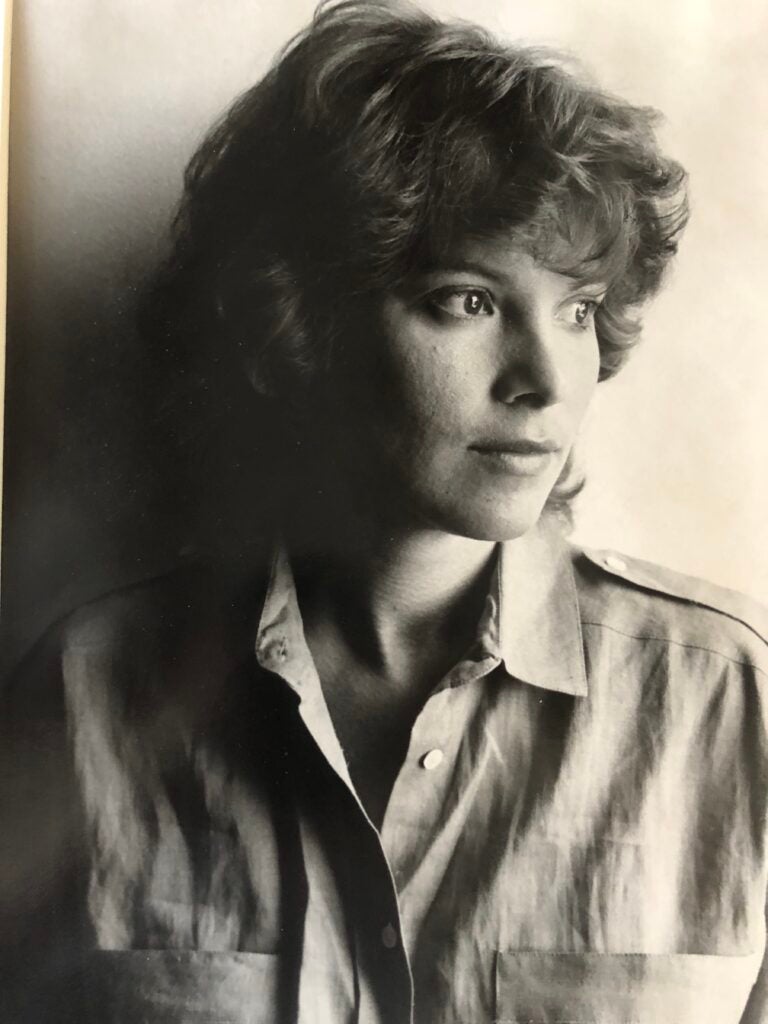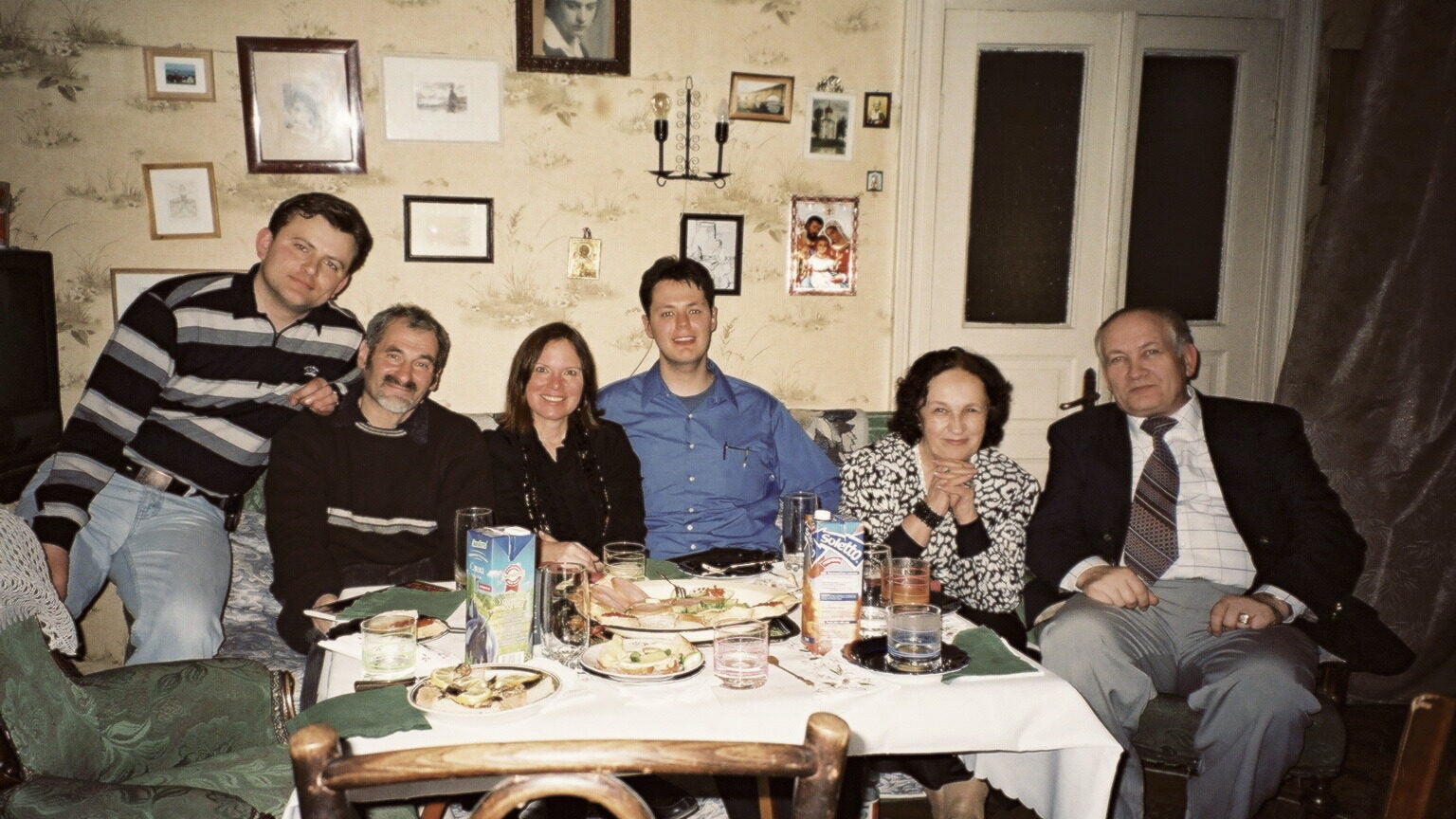Carolyn Forché Elected Chancellor of Academy of American Poets
The Academy of American Poets has elected Carolyn Forché, Ph.D., the newest member of its Board of Chancellors. Forché, the former director of the Lannan Center for Poetics and Social Practice and a University Professor in the Department of English, is the 147th chancellor elected by the Academy in its 88 years of building an audience for American poetry and supporting writers.
As a member of the Board, Forché will advise the Academy, guiding its awards, operations and focus. For a poet whose work has consistently re-centered the critical gaze on international communities and oppressed groups, chancellorship offers a formal avenue to ensure that the art form will continue to champion a diverse array of poets.
Forché’s illustrious career is delineated by five volumes of poetry, two anthologies and one memoir. In addition to her work as a poet, editor, translator and teacher, she has spent decades advocating for human rights on an international stage.
Poetry as History
Her first book of poetry, Gathering the Tribes, won the 1975 Yale Series of Younger Poets Award, the oldest annual literary prize in the United States. After receiving acclaim for a work rooted in her personal history and experience, Forché became an eyewitness to history-making when she received a Guggenheim Fellowship that enabled her to travel to El Salvador.
Forché saw the outbreak of the Salvadoran Civil War, an experience that brought her face-to-face with the gruesome inhumanity of conflict. Bearing witness to flagrant human rights abuses not only fundamentally changed her perspective, but permanently redirected her career. Forché’s second volume of poetry, The Country Between Us, centers its collection around her experience in El Salvador, making sense of the brutality on display in armed conflict.
The Colonel, a prose poem she wrote after an encounter in 1979, recounts a dinner she attended at the home of a high-ranking official and his family, where a rack of lamb and good wine were served. Forché slams the horrific reality of war up against the pleasantries of the dinner – the titular colonel dumps a bag of dried human ears out onto the table, telling the poet in no uncertain terms that her people’s concerns about human rights meant nothing to him.
Poetry as Advocacy

After returning to El Salvador, Forché became, and remains, a prominent voice advocating for basic human rights at home and abroad. Time and again, she has used her platform and voice to direct attention to communities and individuals who have had their rights stripped away by despots. Her 1993 anthology Against Forgetting collected poetry from more than 140 poets who lived through horrors of the 20th century, including war, military occupation, torture, exile and political persecution.
“Poetry cannot block a bullet or still a sjambok, but it can bear witness to brutality—thereby cultivating a flower in a graveyard,” wrote Nelson Mandela, “Carolyn Forché’s Against Forgetting is itself a blow against tyranny, against prejudice, against injustice. It bears witness to the evil we would prefer to forget, but never can—and never should.”
As a newly-elected chancellor of the Academy, Forché is eager to continue championing a diverse array of voices and perspectives.
“I am deeply honored to be elected as a chancellor by this particular cohort at this particular time,” says Forché. “Over the last few decades, the Academy has shown the way forward on inclusion, outreach and service. Being a chancellor now is an opportunity to serve the poetry community.”
At the Academy’s founding, however, and for much of its history, it wasn’t marked by its inclusivity, but by its pomp and prestige.
“I am happy to have this happening to me now rather than earlier in my life,” Forché confesses. “Now, when I understand the chancellorship as a service rather than a mark of distinction, I have been elected by chancellors who truly reflect the community of poets, I feel honored to join them.”
Poetry as Education
At Georgetown, Forché teaches the seminar for the Lannan Fellows Program and organizes readings and talks for the center. After teaching for nearly 50 years, Forché reflects on the profession as integral to, and inseparable from, her work as a poet.
“The classroom is a very special environment — it’s not separate from the real world,” Forché says. “I have encountered the full range of human experience in the classroom – it is a vital space for dialogue, engagement and listening.”
In the classroom, Forché has had the opportunity to mentor students who have the urge to write and create. Much like the work she will do with the Academy, Forché is dedicated to mentoring the next generation of poets, artists and thinkers.
“It’s all about creating and nurturing a relationship,” Forché reflects. “And finding ways to help students along their own paths – finding their own direction, placing books in their hands and talking to them about their reading. It is deeply gratifying to witness a student’s growth. I never tire of teaching and I can’t imagine doing anything else as a profession”
-by Hayden Frye (C’17)
